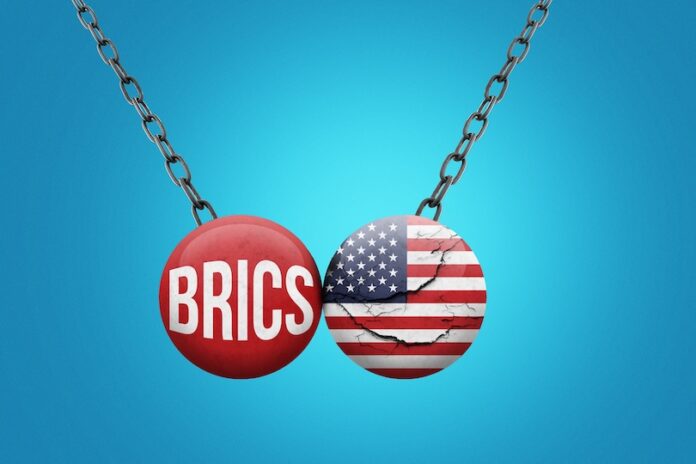In a 1997 speech at the Atlantic Council, Joe Biden recounts telling the General Secretary of the Russian Communist Party Zyuganov, who threatened to turn to China in reaction to discontent over NATO’s expansion in Europe, “good luck, and if that doesn’t work try Iran”. According to Biden at the time, trade with China and Iran “is not an option” and that while countries such as Russia may “resent [it], they need to look West” (see here from 21’55” to 22’34”). Biden’s story triggered laughter among the audience, but a (social-)psychologist may have told him to be wary of resentful actors. Resentment is triggered in reaction to be being placed in a lesser, undeserved social status, and motivates actors experience the emotion to form alliances and challenge the status quo. Indeed, little did Joe Biden know that during his presidency, countries that have been on the receiving end of US economic statecraft, such as Russia, Iran, and China, would deepen their ties and actively pursue ‘de-dollarization’, which McDowell defines as “the intentional reductions of the dollar’s role in a nation’s cross-border economic activities” (2023: 5). States engage in this economic policy by using existing currencies such as the euro and the renminbi, by carrying out international transactions through payment systems that do not require the US dollar. A more difficult approach is to create a new, common currency.
During the BRICS+ summit in Kazan, Russia, Vladimir Putin announced, a BRICS payment system, BRICS Pay. While there is talk of a BRICS currency, this plan is in its infancy. According to Putin’s statement, BRICS members are focused on short-term projects that aim to “enhanc[e] the role of BRICS in the international monetary system, expanding interbank cooperation and expanding the use of national currencies in mutual trade.” BRICS+ is an informal group, originally composed of Brazil, Russia, India, China and South Africa. In early 2024, its membership expanded to Iran, the United Arab Emirates, Egypt, Ethiopia, and following the October 2024 summit 13 more countries will reportedly join. The appeal of BRICS+ is that it aspires to create an alternative economic order that will rival the system that has been created by Western powers, which many states feel has left them at a disadvantage. It is also through this grouping that states can coordinate de-dollarization, as illustrated by Putin’s comments.
The drive to use currencies other than the US dollar, which currently dominates the financial system, is not new (Papa 2023). Over the years, the increased US ‘weaponization’ of its currency has given further incentive to states to seek alternatives. Replacing the US dollar is no small feat, and while some commentators have expressed skepticism and maintained that the “BRICS de-dollarization dream remains fantasy”, US policy-makers seem to be wary, as illustrated by the fact that Congress held a meeting on ‘Dollar Dominance: Preserving the U.S. Dollar’s Status as the Global Reserve Currency’ in June 2023. In March 2016, Jack Lew, the previous US Secreatary of Treasury, already cautioned that sanctions overuse would give states incentives to minimise the use of the dollar and avoid transactions through US payment systems (see also McDowell 2023). If policy-makers are paying attention, it is because de-dollarization would have a serious impact not only on the US’s standing as a global power, but also on its national economic stability.
While it is not a novel argument to discuss de-dollarization and geopolitical rivalry, this short article argues that the attraction of de-dollarization is, in part, driven by countries’ resentment against US (and now EU) sanctions practice, which motivates actors to pursue structural change. It first explains how the United States of America has weaponized its currency to impose unilateral (extraterritorial) sanctions, a legally questionable practice, and considers to what extent the European Union is engaging in a similar policy. It then focuses on the resentment this has given rise to, providing an inventive to seek alternatives. It should be noted that the growing popularity of groups such as BRICS+ is not only caused by sanctions, but also by structural inequality in the international system more generally, which this article does not delve into.






